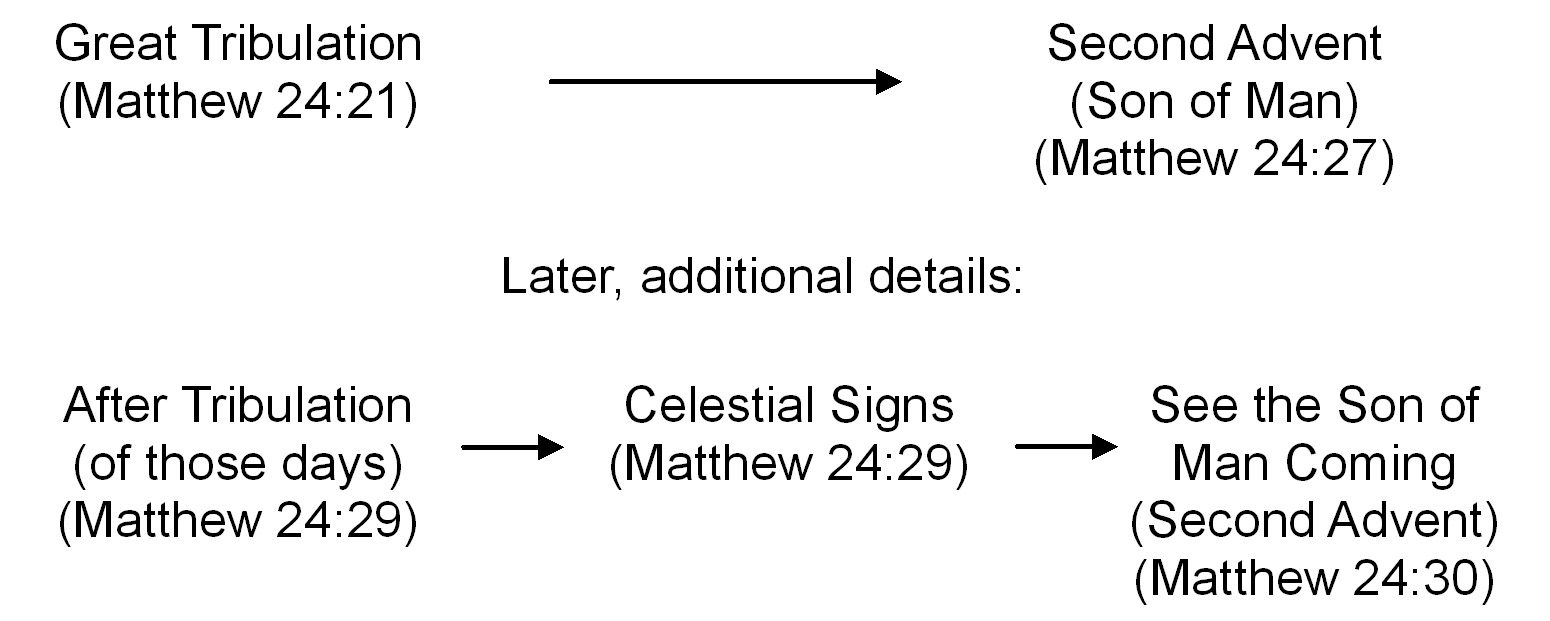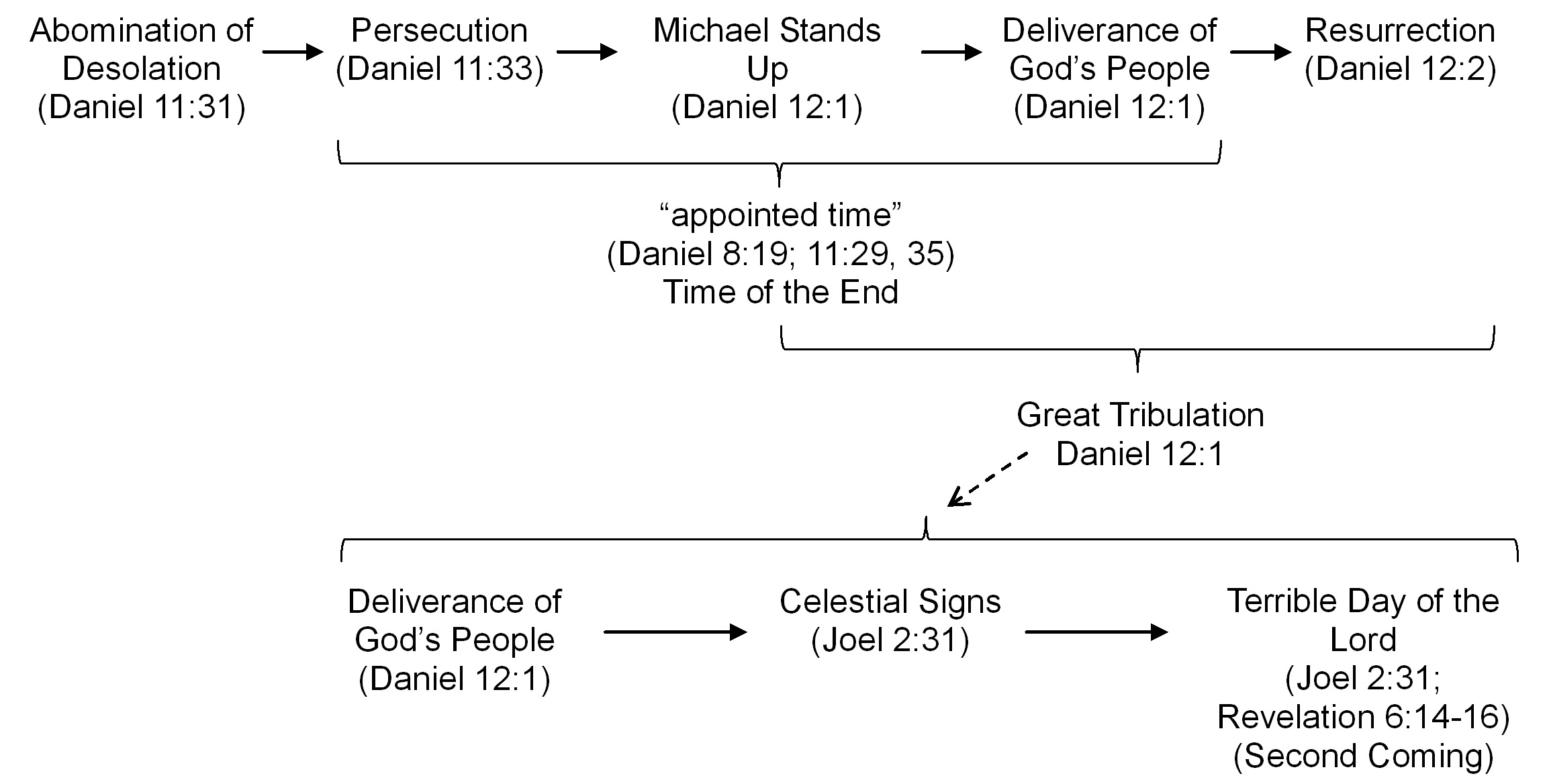[for PDF click here]
A Portentous Time
(A Matthew 24 Series)
Part 5
(A Matthew 24 Series)
Part 5
We are advised, through the Olivet discourse, that when apostasy, that God calls abominable, impacts His people:
- “Flee!”
- Escape to a place of safety (spiritual and physical).
- Disassociate yourself from that “abomination,” detailed in Daniel 8–12.
That time of tribulation is referred to specifically by John the Revelator:
- “And the holy city [referring collectively to God’s people] shall they tread under foot forty and two months” (Revelation 11:2). It will be time-limited by divine directives.
- Persecution will begin with legal enforcement of that abomination.
- The immediate Mathian context is: “Flee! The days of vengeance against God’s true people have begun.” Though Christ’s mandate suggests the possibility of escape, persecution does occur. It will be a time of great trial.
“Then let them which be in Judaea flee into the mountains: Let him which is on the housetop not come down to take any thing out of his house: Neither let him which is in the field return back to take his clothes. (Matthew 24:16-18).
- To broaden this picture, we look at Luke’s parallel record.
- “And when ye shall see Jerusalem compassed with armies, then know that the desolation thereof is nigh. Then let them which are in Judaea flee to the mountains; and let them which are in the midst of it depart out; and let not them that are in the countries enter thereinto” (Luke 21:20-21).
- Those in the city (Jerusalem)
- Those in the country (Judea)
- If you’re in the country – don’t go to the city ] Flee to the
- If you’re in the city – don’t go to the country ] mountains
- If in the field, don’t go to the house ] The imagery: Don’t delay for an instant!
- If on top of the house, don’t go into it ] Don’t delay for an instant!
Most scholars accept Eusebius’ report (H.E. 3.5.3) that the early Christians in Jerusalem did flee to Pella in the foothills of the east Jordan Valley.
“Eusebius apparently based his opinion on Ariston of Pella (Lüdemann 1980:165-166 following A. Schlatter; Koester 1989:92) although most writers credit the Memoirs of Hegesippus….
“The apologist Ariston was a Judeo-Christian writer, ca. CE 150, belonging to the congregation of Pella (Baus 1990:208; Quasten 1950:195f; Koester 1989:92). Hegesippus was an orthodox writer, ca. CE 180, who traveled about collecting evidence and recording traditions with an orthodox construction thereby linking ‘correct’ tradition and succession with order and unanimity" (Johnson 1976:53).”[2]
At the time of this Christian escape, Pella was apparently heavily wooded with a good supply of water. The distance from Jerusalem was 60-65 miles. It was under Greek protection, thus a haven for the Christians.[3]
The response of God’s end-time church to the infiltration by the “abomination” will be no less urgent. There will be initial pressure against God’s people (symbolized as “Jerusalem”) to defy His law. That will be a warning signal that a pending “siege” and “infiltration” against our religious convictions will follow.
- Daniel relates the abomination to attempts at obliterating God’s true Sabbath
- And concomitantly setting up a false worship day.[4]
- All these moves are enforced by laws described especially in Daniel 11:31 and 12:11.
- The Hebrew word natan (“set in place”) is used in both verses, contextually suggesting that the abomination will become legally binding.
Unique Pastoral and Theological Commentary
It could have been seen as sufficient warning for the safety of the Christian Church if this prophecy stopped at verse 18. But the next two verses bear thoughtful interest.
“And woe unto them that are with child, and to them that give suck in those days! But pray ye that your flight be not in the winter, neither on the sabbath day” (Matthew 24:19-20; cf. Luke 21:16).
This elevates the picture of God’s paternal love. Pray that the “flight” – that urgent escape – fleeing many miles – will not have to be done by a pregnant or nursing mother. The sudden abandonment of everything would be a significant stress, let alone a long journey. Pray that that won’t happen.
Mark adds, along with Matthew, the concern that this flight not be in the winter (Mark 13:18). This divine pastoral concern was meant not only for the Jewish people but for the remnant when anticipating His imminent return.
God is asking us to be prepared to respond at a moment’s notice, to abandon the satanic influences that will try to mar His church. In mercy He appeals that no earthly experience, even as close as a nursing child, will bring harm. He asks that no external event, weather, season or calamity be permitted to veer the saint from a decided move to maintain a commitment to Him. He says “pray ye.” “That’s what I want. You pray for it also.”
There is a deeper issue that Christ brings to our attention. The sign of the covenant that God has made with man is the seventh-day Sabbath (Exodus 31:16). It not only brings to remembrance God’s creative power, but His re-creative work in redemption (Deuteronomy 5:15). Honoring the Sabbath is affirming our confidence in His restoring promises.
Pray that, as you flee from the influences of Babylon, the Sabbath experience will be preserved, that the eternal beauty of that covenant relationship will remain holy and undefiled.
The intimation actually suggests “breaking the Sabbath” by a “flight” during those sacred hours. It is a firm appeal to avoid any experience that alters our relationship with heaven. Pray that nothing will impede the complete fulfillment of God’s covenant rest in us (Colossians 1:27, Hebrews 4:9).
The Sabbath and its great principles were not exhausted at the Cross! This prophecy is a strong reminder that Sabbath rest symbolizes our eternal bonding with Christ – our eternal marriage covenant. Pray that the redemptive work seen in the Sabbath will not be tarnished by earth’s final battle with satanic powers.
Transition Two in Christ’s Narrative
A break in prophetic thought occurred with verse 14, where the end comes following the global spread of the gospel.
- The intervening verses dramatize the invasion of the Christian church and its thinking by a God-defying religious apostasy.
- We were directed to Daniel 8–12 to detail its meaning and timing.
- Matthew’s narrative now transitions again.
The prophetic setting is eschatological:

This tribulation, called the “great tribulation,” is distinct from the persecution previously described in 24:9. We are aided by Old Testament references to this time.

Matthew 24, with the noted Old Testament ties, is of profound significance to God’s people at the eschatological end! A sequence of end-time events can be constructed as a template for all other apocalyptic prophecy. The use of the words “world” and “never will be” in verse 21 suggests that the fall of Jerusalem is not in mind, but earth’s final end at the eschaton![5]

“And except those days should be shortened, there should no flesh be saved: but for the elect's sake those days shall be shortened” (Matthew 24:22).
Many contend that God shortens the time period noted as an “appointed time” because of the tribulation. Since it is an experience of affliction not matched since creation nor will ever be duplicated (Mark 13:19-20), this is logical.
But because God’s clocks for the “appointed time” are precise and repeated as time times half, 42 months and 1260 days, it has a deeper meaning. God will limit the suffering and persecution coming on frail humanity.[6]
“The time of suffering is shortened” for the “sake of the elect” (cf. II Timothy 2:10). “Those days” takes on major significance, alluding to the “great tribulation,” the pre-eschatological “horrors.”[7]
References:
[1] Bock, Darrell L.; Luke, vol. 2 (Baker Academic; Grand Rapids, MI), p. 1678.
[2] http://www.preteristarchive.com/StudyArchive/p/pella-flight.html
[3] Robinson, John A. T.; Redating the New Testament (Philadelphia, PA – The Westminister Press), 1976.
[4] Fowler, Franklin S., M.D.; End-Time Issues of Daniel 8 & 12.
[5] Nolland, John; The New International Greek Testament Commentary (William B. Eerdmans Publishing Company; Grand Rapids, MI), p. 975.
[6] Nolland, op. cit., p. 976.
[7] Hagner, Donald A.; Word Biblical Commentary (Nelson Reference & Electronic, Division of Thomas Nelson Publishers) 33B, p. 703.
Franklin S. Fowler, Jr., M.D.
Prophecy Research Initiative – non-profit 501(c)3 © 2012
EndTime Issues…, Number 144, September 6, 2012
